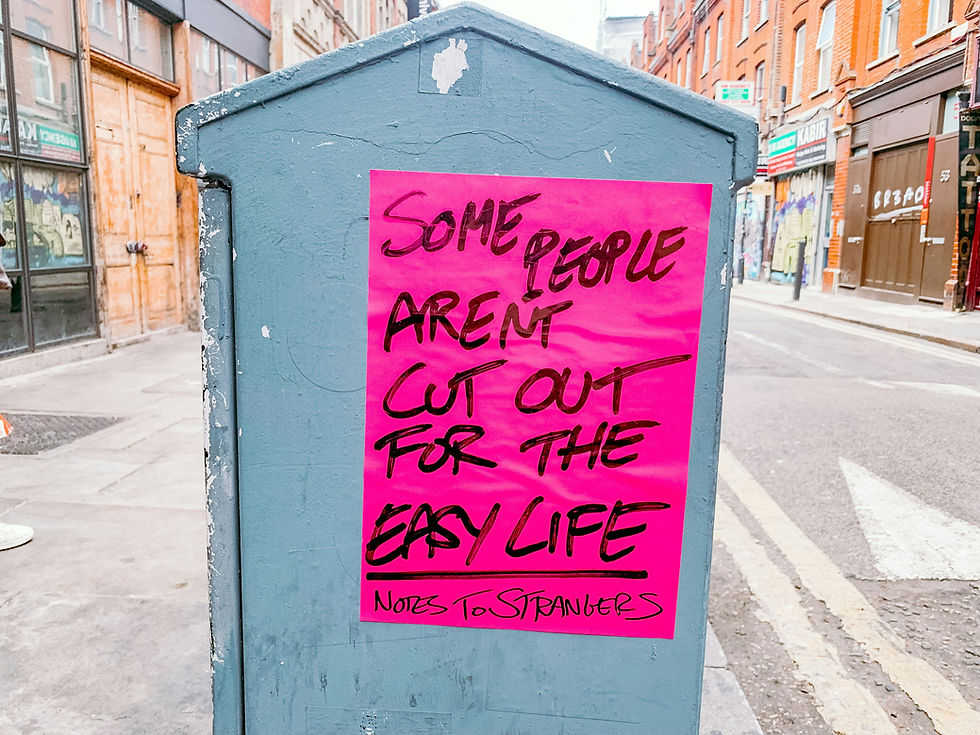Designed to Win – Life and Legacy of Ayrton Senna
- Martyn Foster

- May 1, 2020
- 3 min read
Today marks the anniversary of Senna’s tragic accident at Imola in 1994. His death had a profound effect around the world as he was one of the few athletes to ever transcend their sport.
May 1st, 1994, will forever be etched into the minds of many people as a dark day, the day that the great Ayrton Senna died doing what he passionately loved, racing cars. A number of people dream about going out doing something they loved, but in Senna’s case I think he was “gone too soon”, at the age of 34 he still had so much to give. His passion for motoring began at a young age, no surprise, when his father built him his first go-kart at four years old. By his early teens, Ayrton had commenced competitive karting and secured pole position for his very first race (how Senna-like, for years he held the F1 record for most pole positions, 65). It seemed even from early on that Senna had a God-given ability to drive a car exceptionally fast as he later went on to win karting and British Formula Three championships before securing a drive in Formula 1 in 1984.
Senna won his first F1 race with Lotus-Renault in 1985, but his career really took off when he switched to McLaren-Honda in 1988, winning the first of three world titles. Ayrton Senna was an incredibly successful racing driver, winning three world championships with McLaren-Honda in 1988, 1990 and 1991 (at that point the youngest triple world champion). Senna famously said: “I am not designed to come second or third. I am designed to win.” I’d tend to agree.
His supreme talent was on full display in the two subsequent videos, an onboard lap of Monaco in 1990, and the opening lap of a wet race at Donington Park in 1993 where he goes from 5th to 1st place.
It’s easy to see why Senna was dubbed the ultimate “driver’s driver”, his relentless desire to win matched only by his talent level, but his ruthless driving style ran at odds with his huge, generous heart. Such a paradox is highlighted by two instances: effectively running into Alain Prost in 1990 at Suzuka which handed him the championship (which led to the perpetually quoted line “if you no longer go for a gap that exists, you’re no longer a racing driver” as justification), and in 1992 at Spa-Francorchamps when Erik Comas had a massive crash and Ayrton stopped mid race on track and risked his own life to pull Comas from the wreckage.
This huge, generous heart was exemplified off the track through Senna’s humanitarian work. He did work to raise the awareness of poverty in his home country of Brazil, donating millions to help underprivileged children, unbeknownst to most people. Only a few months before his death, Ayrton started laying the groundwork to what eventually became the foundation named his honour, “Instituto Ayrton Senna” and led by his sister, Viviane, it has since provided in excess of $US80 million in helping the poor.
Such was the scale of the tragedy to the Brazilian people the Government declared three days of national mourning for Senna’s death. Somewhere in the vicinity of three million people flocked to the streets of Sao Paolo to pay their respects, truly a sight to behold and a testament to the impact the man had.
Senna’s death capped off a pretty horrific weekend for F1, from Rubens Barrichello’s massive crash on Friday practice to Roland Ratzenberger’s death during qualifying the day before the race. Senna visited fellow Brazilian Barrichello in hospital, and it wasn’t until after Senna’s crash that they found an Austrian flag in his car which he had planned to raise after the race in honour of Ratzenberger. Such a rare combination of compassionate soul and merciless competitor.
Ayrton Senna, one of a kind, a truly enigmatic human being whose legacy will be eternally preserved.
If you have not seen it, I highly recommend the 2010 documentary “Senna”, and I would say you don’t even have to be a fan of F1 to find it rewarding.



Hi Naomi, thank you for your comment and thank you for signing up. Yes, a tremendous loss to the world. It's not a given that great athletes are great people, as I mentioned above it's rare to have an ultra-competitive person be so caring and compassionate (and to many people) and that is why he was adored and hero-worshipped in his home country of Brazil.
He was a great athlete and a great person. The money he raised to help his country is phenomenal! Definitely a sad loss to the world.